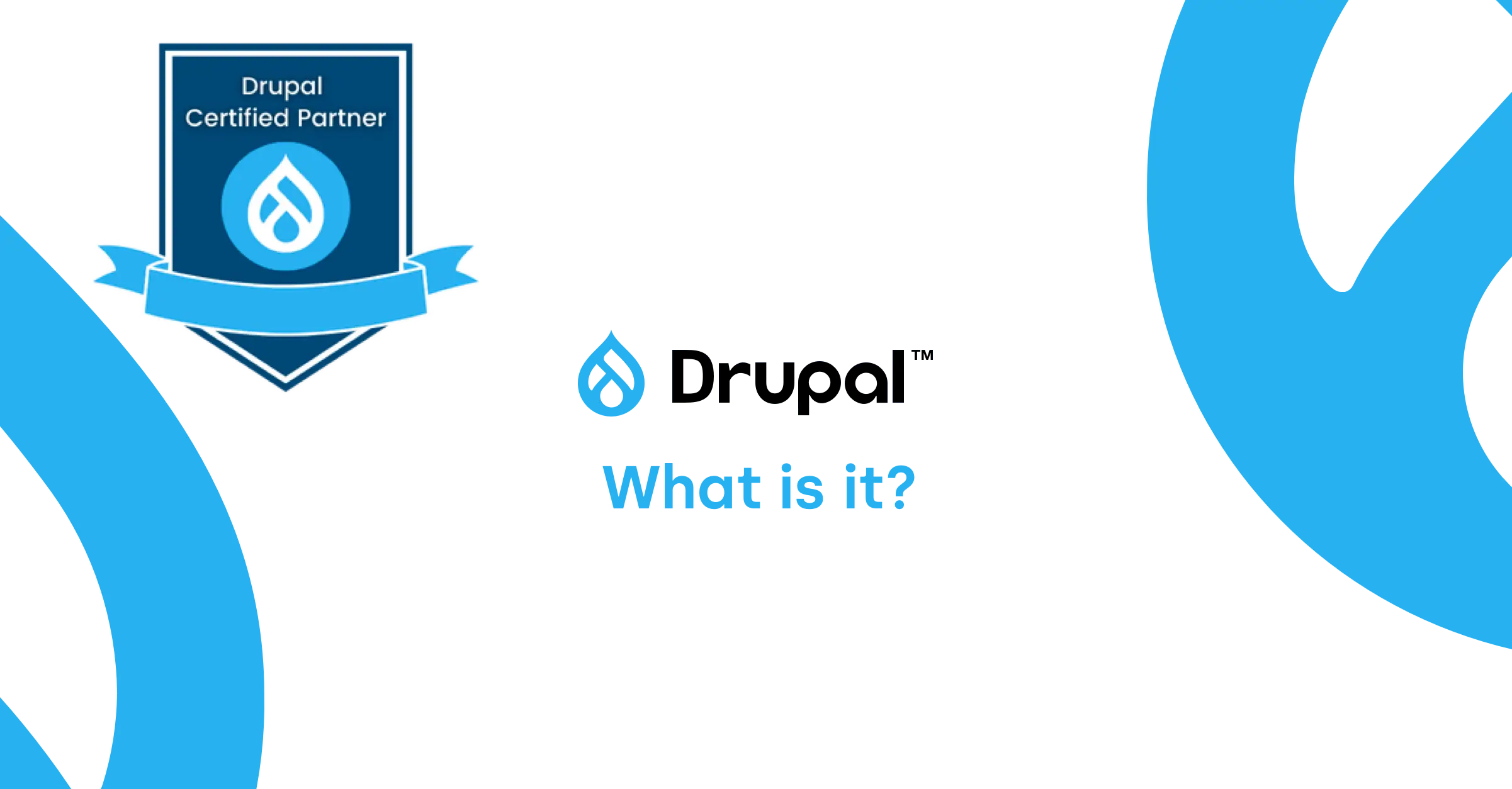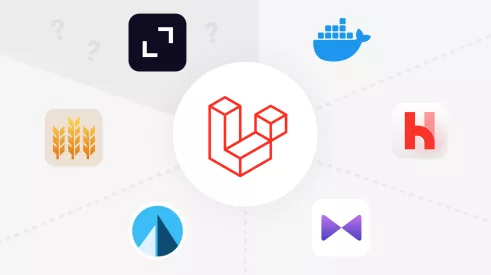You're thinking about doing a web project in Drupal?
Contact usIn this article, I dive into one of my favorite technologies: Drupal. Drupal is a content management system (CMS) developed in PHP and distributed under an open-source license. It provides a robust and flexible platform for creating and managing websites and web applications. Through an administrative interface, users can create, organize, and publish a variety of content, including web pages, articles, images, videos, taxonomies, and much more.
From Drupal 8, released in November 2015, it integrates the renowned French Symfony framework, aiming to attract more developers to create Drupal sites and to fully exploit PHP’s object-oriented approach.
Open source
Distributed under the GNU General Public License (GPL), Drupal is completely free. With this open-source approach, it promotes collaboration, innovation, and knowledge exchange within its global community of developers, contributing to its continuous evolution and adaptation to the changing needs of modern web.
Usage of Drupal
Drupal is a popular choice due to its ability to effectively and securely manage large volumes of content, offer advanced features, and be customized according to the specific needs of each project. It is suitable for designing and managing blogs, showcase sites, intranets, directories, and online stores.
Thanks to its modularity and robustness, Drupal is often chosen for projects requiring high security, scalability, and advanced customization. It is particularly appreciated by large corporations and government agencies. To date, Drupal has been used to develop more than a million websites.
Libéo has extensive expertise in Drupal development with several major projects completed for its clients under Drupal 7, Drupal 8, Drupal 9, and of course the current latest version, Drupal 10, and provides support and updates for these.
Drupal vs. WordPress and its competitors
Here is a brief comparison between Drupal and other open-source CMS:
- WordPress: Drupal and WordPress are among the most popular in the open-source CMS domain. WordPress is more oriented towards blogs and simpler websites, while Drupal is often chosen for more complex projects requiring advanced customization and more robust content management. WordPress has a gentler learning curve and is often preferred by beginner users, while Drupal offers greater flexibility and superior scalability for experienced developers.
- Joomla: It sits somewhere between Drupal and WordPress in terms of complexity and features.
- TYPO3: TYPO3 is a robust open-source CMS often used for complex websites. It offers great scalability and a modular architecture similar to Drupal, with a particular focus on multilingual content management and advanced customization. It may be considered more complex to use than Drupal for beginners, but it provides a solid solution for projects requiring sophisticated content management for that reason, Libéo also specializes in TYPO3 development. It remains less popular than Drupal.
- Magento: Used primarily for e-commerce websites, it is sometimes compared to Drupal due to their ability to handle complex projects. Magento is specifically designed for e-commerce, while Drupal can be used for a wider range of web projects, including e-commerce, with the help of numerous additional modules like Drupal Commerce.
Advantages of choosing Drupal
In addition to being 100% free, Drupal offers many major advantages, including:
- Security : Drupal is renowned for its robustness in terms of security. Its developer community is proactive in discovering and resolving security vulnerabilities, and updates are regularly published to ensure the protection and integrity of websites.
- Flexibility and scalability: Drupal stands out for its great flexibility and can be adapted to a wide variety of needs. Its modular structure allows additional features to be added thanks to a vast library of modules and themes.
- Active community: Drupal benefits from an impressive, dynamic global community that contributes to development, documentation, and support. This means that there is a multitude of resources available, from discussion forums to community events. The Drupal community has over a million members. For more information about this community, visit the official drupal.org website.
- Content management: Drupal offers powerful content management, allowing users to easily create, edit, and organize their content. It supports a variety of content types, from blog posts to complex landing pages. It also integrates editing tools like WYSIWYG to provide a smooth and intuitive user experience when modifying content.
- Advanced customization: With its modular architecture, Drupal allows advanced customization. Developers can create custom themes and extend the base functionality to meet the specific needs of each project.
- Robustness and reliability: Its ability to handle large amounts of content and traffic, as well as its resistance to security flaws, make it a trusted solution for web projects of any size.
- Multilingualism: Drupal offers native support for multilingualism, allowing websites to be created in multiple languages.
- Multisites: This feature allows maintenance and management costs to be reduced by sharing resources such as themes and modules. Moreover, each website can have its own distinct database (usually MySQL), allowing data isolation and optimal scalability. This ability to manage multiple websites from a single Drupal installation facilitates the management and administration of websites for developers and system administrators.
- Role and access management: Drupal offers an advanced system of access and role management, allowing administrators to finely define access permissions for each user or group of users
- SEO-friendly: Drupal offers features such as customizable URLs, meta tags, and advanced redirection management, which facilitate search engine optimization.
- Headless CMS support: Drupal offers the option to be used as a “headless” CMS. In this mode, Drupal is used solely as a backend to manage content, while the frontend is developed separately, allowing greater flexibility in creating personalized user experiences. This approach enables developers to use modern JavaScript frameworks such as React, Angular, or Vue.js to build dynamic and responsive user interfaces, while leveraging Drupal’s power and flexibility to manage content. This provides an ideal solution for web and mobile applications requiring highly interactive and personalized user experiences.
Libéo: your Drupal web agency
With over 25 years in the field, Libéo stands out as your specialized Drupal CMS agency, offering expertise in creating robust, custom-designed websites. Thanks to our deep mastery of web technologies, including HTML, CSS, and JavaScript, we turn your ideas into reality with precision and creativity. Every click counts, and our goal is to optimize every aspect of your site, from initial design to ongoing updates, ensuring a dynamic and high-performing online presence. By choosing Libéo, you opt for a solution in both English and French, tailored to your global needs.
In summary
Drupal stands out for its versatility, robust security features, sophisticated content management, and capabilities designed to meet business needs. Additionally, its advanced capabilities, such as headless mode and multisite management, make it an even more powerful and adaptable solution for a wide variety of web projects.





